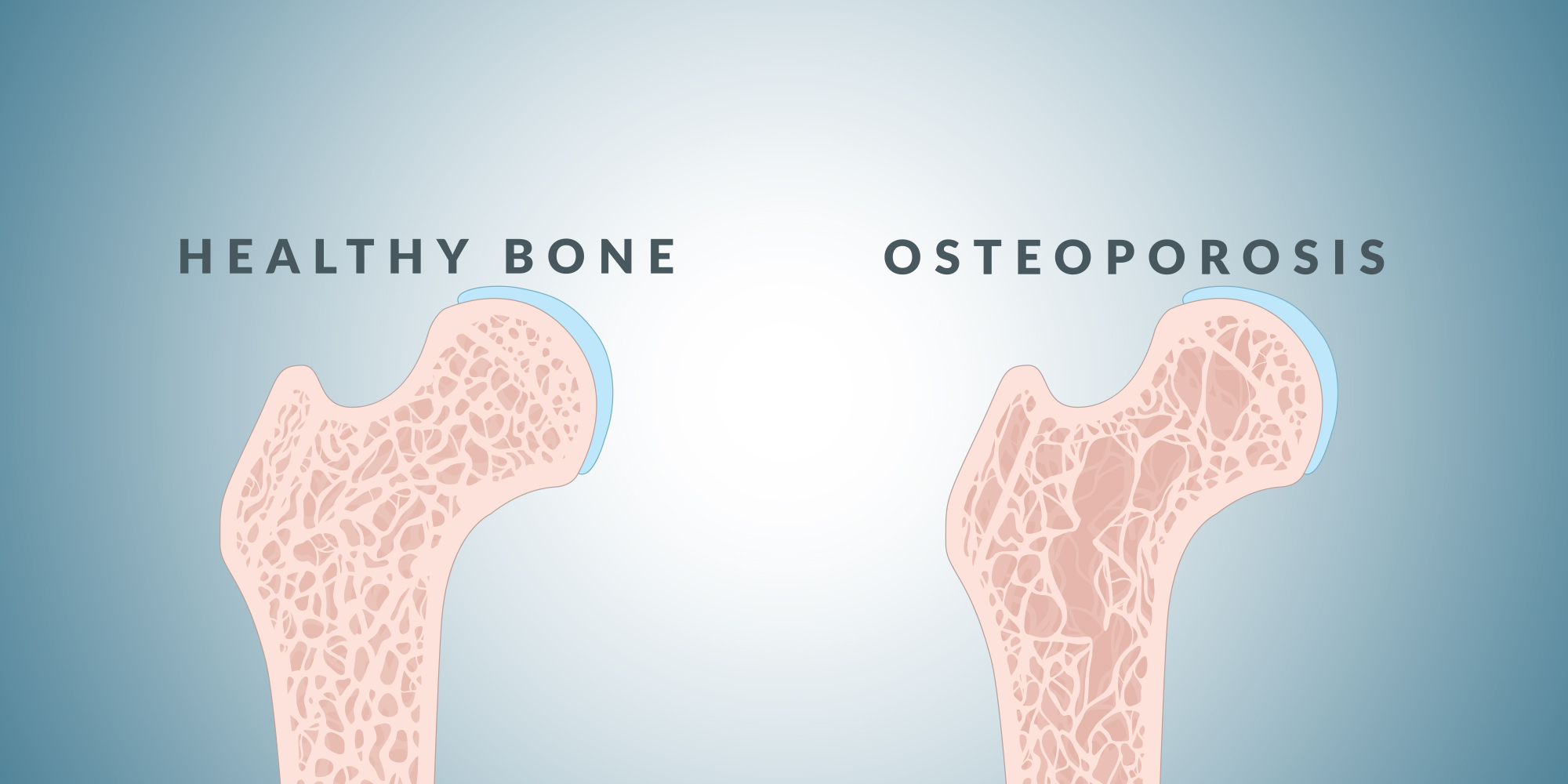How to Love Your Bones & Keep Them Healthy
May 2, 2018
Categories: Women's Health, Health & Wellness
 By Rod Marianne Arceo-Mendoza, MD, Endocrinology
By Rod Marianne Arceo-Mendoza, MD, Endocrinology
Osteoporosis, a bone disease causing bones to become weak and more likely to break, affects 10 million Americans with another 44 million Americans at serious risk due to low bone mass.
The National Osteoporosis Foundation estimates that one in two women and up to one in four men over age 50 will break a bone in their lifetime due to osteoporosis. In a way, osteoporosis is a silent disease, only revealing itself after you break a bone.
How can you avoid joining the 10 million current Americans suffering from osteoporosis?
We'll share some prevention tips, information about screenings, and more to help you take care of your bones.
While there is no secret or complicated strategy to keeping your bones healthy, there are two two essential tips I recommend:
- Get the recommended daily amount of calcium and vitamin D
- Exercise regularly and keep a good, nutritious diet
How much calcium and vitamin D do I need?
1,200 milligrams is the recommended daily calcium intake, with 800 international units of vitamin D being recommended on a daily basis.
Other aspects of an individual's lifestyle, like avoiding heavy alcohol use and not smoking, may also play a part in keeping your bones healthy.
How do I get screened for osteoporosis?
According to the American Association of Clinical Endocrinologists, all post-menopausal women and any women over the age of 65 should get screened for osteoporosis.
Any individuals who have a history of bone fractures without major trauma, brittle bones, anyone on steroid treatment or who have low body weight, and women with a family history of osteoporosis are recommended to get screened.
DXA screening test for osteoporosis
The best screening for osteoporosis is what experts call a "DXA" test. The DXA test, short for dual energy x-ray absorptiometry, is a special kind of x-ray that will help your doctor determine bone density.
Fracture risk assessment screening for osteoporosis
Completing a fracture risk assessment is another screening your doctor can perform. It involves covering your and family's health history, physical examination, and standard biochemical testing combined with the results from your bone density test.
The ultimate goal of any osteoporosis treatment is to restore the balance of bone formation and resorption, while avoiding any future bone fractures.
The first step in osteoporosis prevention and treatment is to go see your doctor. Talk with them about other prevention techniques or screenings available to keep your bones healthy.
Seeing an endocrinologist or other osteoporosis specialists may be necessary for those who are suffering from severe osteoporosis, have sustained a major fracture with very little to no trauma, or if you've experience consistent fractures while being treated for osteoporosis.
May is National Osteoporosis Awareness and Prevention Month, take steps to keep your bones healthy while showing them some love.
Rod Marianne Arceo-Mendoza, MD, is an endocrinologist at Loyola Medicine. Her clinical interests include bone diseases, bone metabolism, calcium metabolism, calcium metabolism disorders, diabetes melltius, endocrine disorders and diseases, osteoporosis, paget's disease, parathyroid disorders, thyroid and parathyroid disease and disorders and thyroid cancer.
Dr. Arceo-Mendoza earned her medical degree at the University of Santo Tomas in the Philippines. She completed residencies in internal medicine at Geisinger Medical Center and New York Medical College Affiliated Hospitals, with a fellowship in endocrinology at Loyola University Medical Center.
Book an appointment today to see Dr. Arceo-Mendoza or another Loyola specialist by self-scheduling an in-person or virtual appointment using myLoyola.
